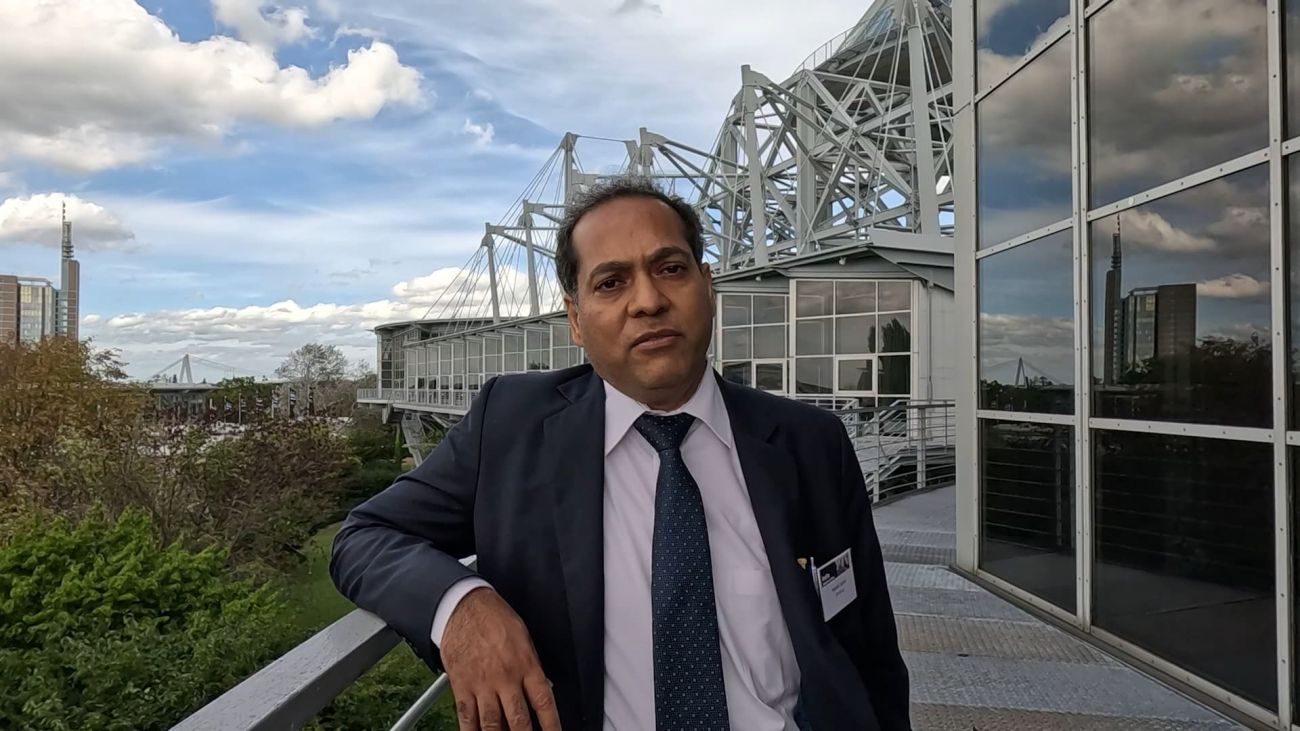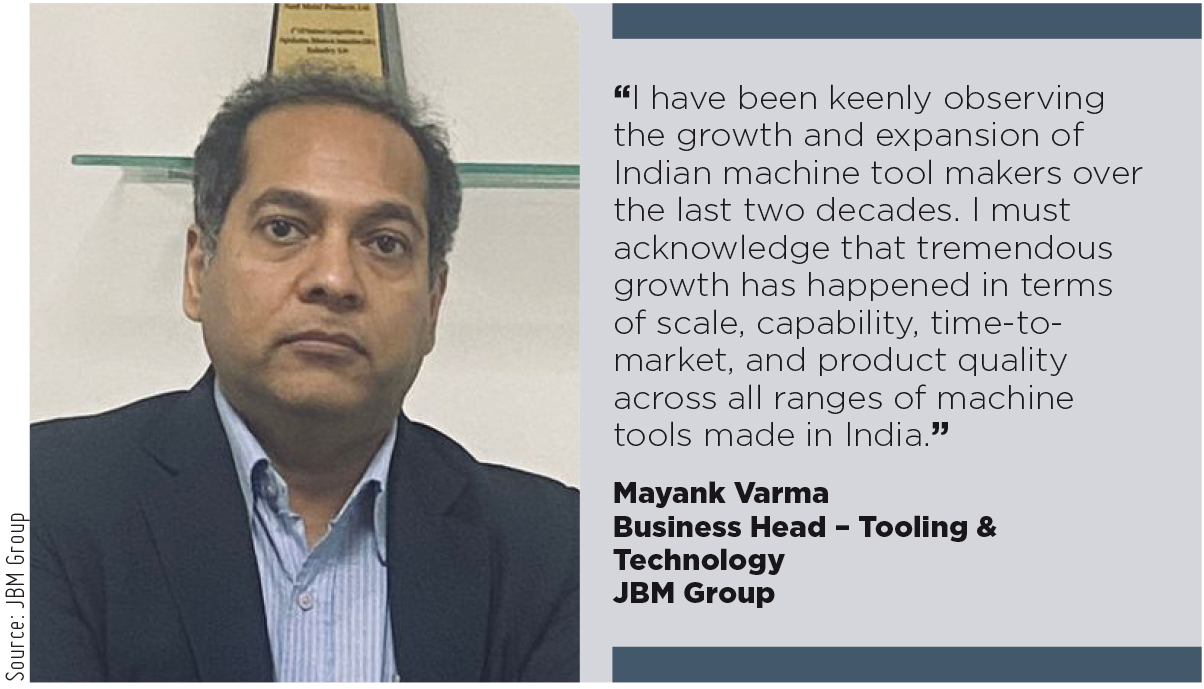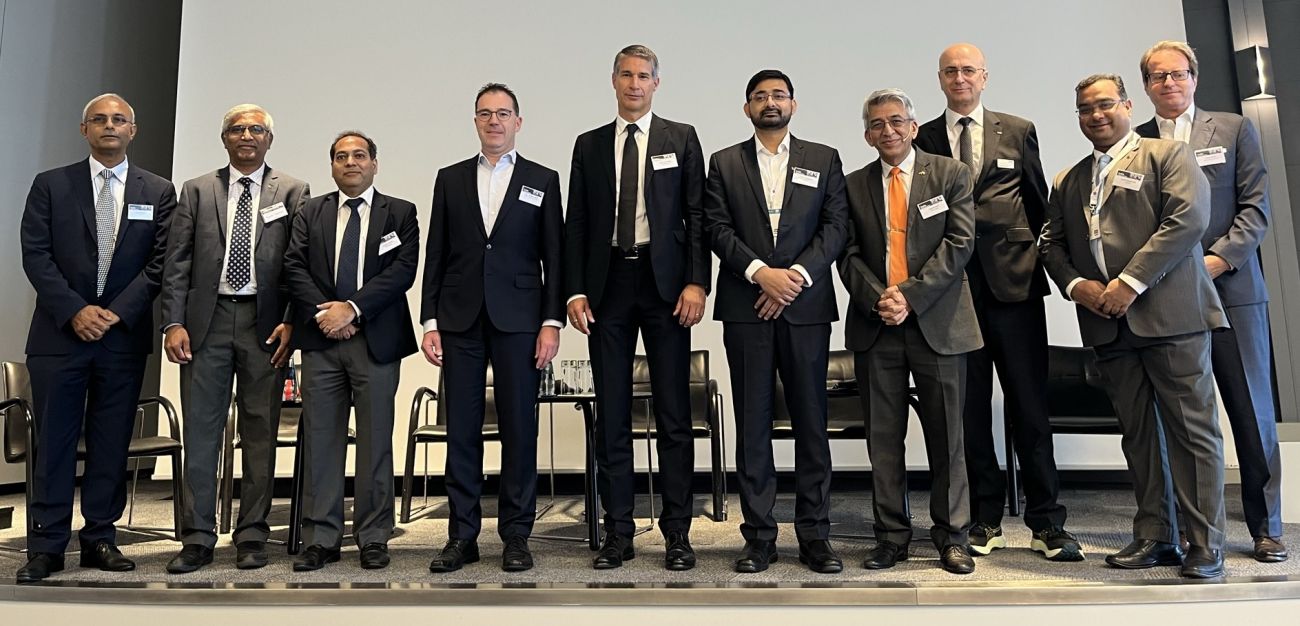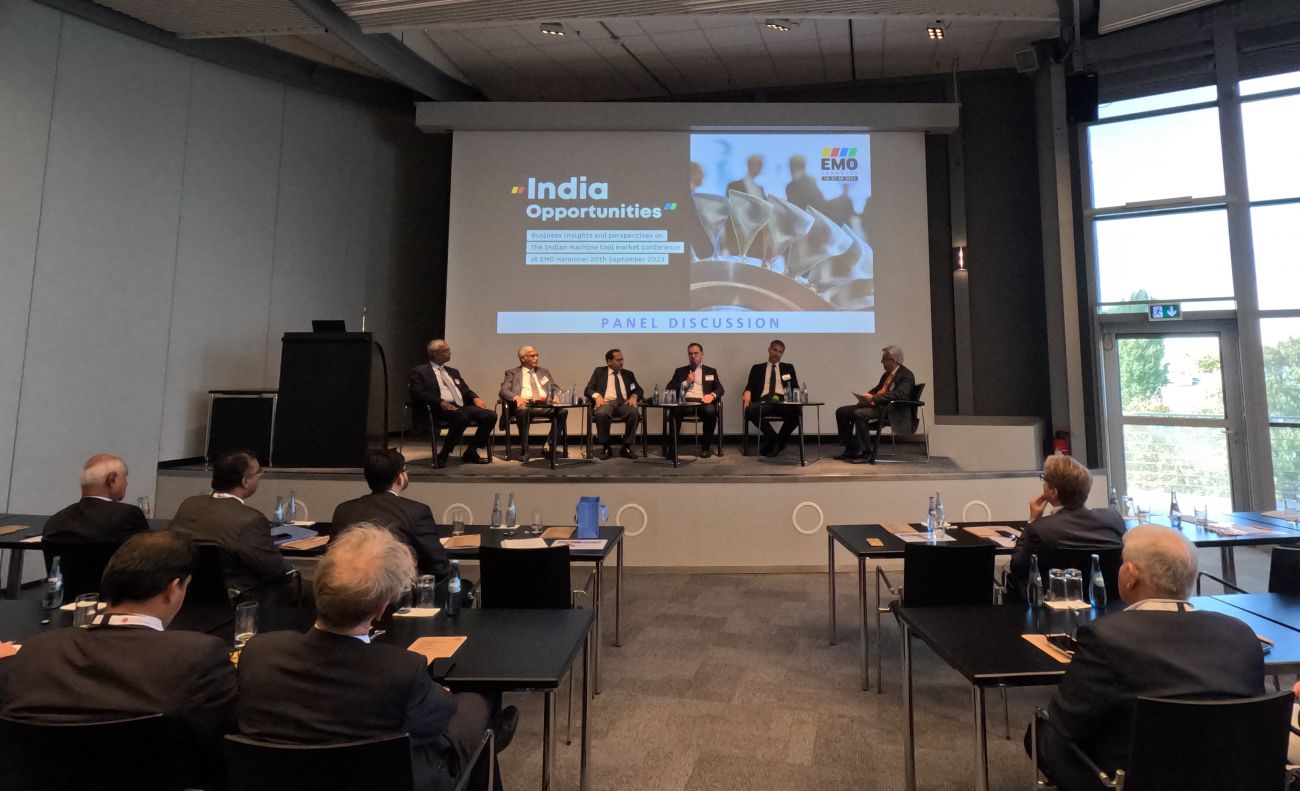PRESERVING LEADERSHIP EXCELLENCE

Mayank Varma, Business Head – Tooling & Technology, JBM Group, reveals the company’s important milestones marking its successful journey and shares his observations on the manufacturing technologies showcased at EMO, views on Indian machine tool makers, with insights into the trends, challenges, and opportunities prevalent in the machine tools manufacturing landscape in the following interview.
JBM Group has evolved over the last four decades from being a cost-driven company to a value-driven dynamic conglomerate that provides total cost-of-ownership solutions. Take us through this growth journey and highlight important milestones of your Tooling and Technology business.
Yes, JBM has truly grown in the last four decades and is now a big conglomerate with 60 plants, over 25,000 employees, and a presence in more than 30 countries. It has expanded from an Auto Component business to other business segments in E-Mobility, covering the entire EV ecosystem, Renewable Energy, and Environment Management. We also export to 25 countries.
In our Auto Component business, we have grown to become a leading supplier of Automotive Stamping Parts, including Skin Parts, High-level Welded Assemblies, Chassis and Suspension parts, Exhaust Systems, CNG Cylinders, Pulleys, Steel Processing, and Tubular Parts. Our Tooling and Technology business has also grown from strength to strength and is India’s largest Tooling business, offering a one-stop source for Automotive Sheet Metal Tooling and Robotic Welding systems. We have eight Tooling plants spread across North, Central, and Western India. We serve more than 30 customers across segments in the Automotive domain.
JBM has a substantial presence in Europe. Talking of Europe, you were one of the eminent panelists in an insightful panel discussion held by IMTMA, VDW, and VDMA India at EMO Hannover. Can you please share your observations on the manufacturing technologies that you witnessed at the show in terms of implementing those in the Indian Manufacturing sector?
EMO Hannover has always been the most significant global platform to showcase the latest products, processes, and technology trends in the Machine Tool industry. Out of all the manufacturing technologies on display, there was a clear focus on precision machining in Turning, Grinding and CNC machining, Wire Cut, and Conventional machining. Also, many new things are coming up in automated inspection and scanning systems. In terms of applicability for Indian manufacturing, I believe that all technologies offering high-speed productivity with sustainable product quality will be very useful for our industries offering precision products for Indian and global markets. All the latest machine tools offering Industry 4.0 features and a highly digitized user experience would become basic for our industries focused on import substitution and export potential. With the Government’s strong push for ‘Make in India’, I see huge potential for these technologies for our industries in the Automotive and Non-Automotive segments. However, the cost competitiveness of new technologies and machine tools would also play a crucial role in their adaptation in the context of Indian industry.
trends in the Machine Tool industry. Out of all the manufacturing technologies on display, there was a clear focus on precision machining in Turning, Grinding and CNC machining, Wire Cut, and Conventional machining. Also, many new things are coming up in automated inspection and scanning systems. In terms of applicability for Indian manufacturing, I believe that all technologies offering high-speed productivity with sustainable product quality will be very useful for our industries offering precision products for Indian and global markets. All the latest machine tools offering Industry 4.0 features and a highly digitized user experience would become basic for our industries focused on import substitution and export potential. With the Government’s strong push for ‘Make in India’, I see huge potential for these technologies for our industries in the Automotive and Non-Automotive segments. However, the cost competitiveness of new technologies and machine tools would also play a crucial role in their adaptation in the context of Indian industry.
|
With the Automotive sector reaching 12-15 percent of the total GDP and more than 40 percent of the manufacturing GDP, huge growth and impetus is imminent in the Machine Tools industry. |
What are your views on Indian machine tool makers? How do you assess their strengths and areas for improvement and how do they fair vis-à-vis their global counterparts? What crucial changes must they embrace to step up their game?
I have been keenly observing the growth and expansion of Indian machine tool makers over the last two decades. I must acknowledge that tremendous growth has happened in terms of scale, capability, time-to-market, and product quality across all ranges of machine tools made in India. Talking of strengths, cost competitiveness remains our biggest advantage along with time-to-market, especially for domestic use. Also, ease of operation and prompt service support availability remains a favorable factor for customers.
|
Mayank Varma, Business Head – Tooling & Technology, JBM Group (third from left) along with industry stalwarts at EMO Hannover 2023 post panel discussion on India Opportunities. |
While a positive intent and change are visible overall, a few areas of improvement could be product quality, repeatability, and robustness in terms of long years of trouble-free usage. The design of the product both from the productivity and quality perspective can be looked upon as an area of improvement. Also, awareness and incorporation of the latest technologies in line with global benchmarks can be enhanced in order to compete with global markets and more importantly with global players in the Indian market.
|
The most crucial change that needs to be incorporated is the quality mindset, a commitment towards the ‘First time right, Every time right’ philosophy across all stakeholders responsible for the end product. |
The most crucial change that needs to be incorporated is the quality mindset, a commitment towards the ‘First time right, Every time right’ philosophy across all stakeholders responsible for the end product. Also, robust micro-level planning, review, and control mechanism is essential to meet time-to-market and compete globally.
Could you please provide us with insights into the trends, challenges, and opportunities prevalent in the machine tools manufacturing landscape? How does your company contribute to the advancement and growth of the machine tools sector in the country? Kindly provide the breakdown of the usage percentages for machines and tools on the Indian shop floor at JBM, distinguishing between those manufactured domestically and those of foreign origin.
I see immense potential in the machine tools manufacturing landscape. With the Automotive sector reaching 12-15 percent of the total GDP and more than 40 percent of the manufacturing GDP, huge growth and impetus is imminent in the industry. With import substitution and export enhancement in focus, there will be no dearth of opportunities for the Indian Machine Tool sector. As mentioned previously, the primary challenges persist in maintaining quality and technology that align with global competition standards. The increasing trend toward automation creates a high demand for robots, which currently predominantly rely on imports.
We, at JBM, strongly encourage and use Indian machine tools for all relevant requirements from Stamping presses, Weld accessories, CNC machines, Conventional machines, Special purpose machines, Inspection systems and many more products used across our shop floors. A significant percentage of machine tools are locally sourced and will grow only higher as our Machine Tools industry further evolves and competes with global peers on all critical product metrics.
Kindly share the long-term vision of the Group’s role in the Automotive industry, especially in the context of the tooling and technology business and its transition to electric mobility.
Our long-term vision is to sustain and strengthen our leadership in the Automotive and Tooling business. We endeavor to enhance our product portfolio by the Full Service Supplier approach through forward and backward integration. As a Tooling and Technology business, we wish to build scale and capability in terms of enhancing our value proposition. In the realm of Dies, we plan to ascend the value chain by specializing in ultra-high Tensile Tooling, White Goods, Skin Parts, and Large Progressive Dies. This strategic
|
Mayank Varma, Business Head – Tooling & Technology, JBM Group (third from left) along with eminent panelists at the India Opportunities Session at EMO Hannover 2023. |
move aims to position us as the favored choice for customers seeking import substitution. In Welding Systems, the vision is to strengthen our Robotics portfolio, build advanced automation capability, imbibe upcoming technologies like Automotive Laser Welding, etc., and also further venture into Prototyping and Alternate Materials. We also wish to strengthen our R&D capabilities for new products and new technology introduction to capitalize on new trends.
We will also explore the potential for our business in E-Mobility and related products across the EV ecosystem, thus keeping our business product and technology agnostic and remaining adaptive and competitive in the changing automotive landscape.
 |
SOUMI MITRA Editor-in-Chief Modern Manufacturing India soumi.mitra@magicwandmedia.in |





 Facebook
Facebook.png) Twitter
Twitter Linkedin
Linkedin Subscribe
Subscribe